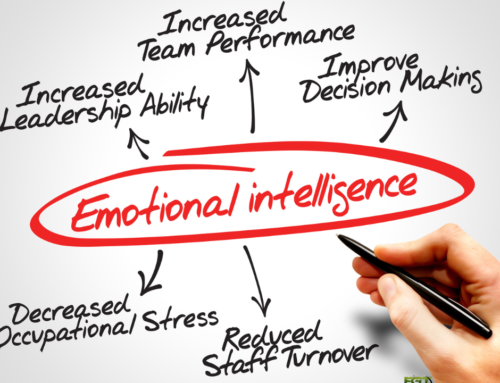The Evergreen of 2021- Part One
In 2021, we covered a range of ways to improve ourselves as colleagues, leaders, and perhaps most important of all, as people. So, with this post (the first of two), let’s revisit some of those themes and maybe see more, become more aware, the second time around.
We can always do better
How boring life would be to have arrived, to have conquered, to be all we can be. Instead, the process of transformation, growth, and learning – even striving to expand- brings adventure and challenge and keeps life exciting.
Maybe this year you will be developing your self-awareness or offering self-compassion. Others may strive to think positively, practice mindfulness, or maintain vibrant physical or mental health.
Each of us can do better in some behavior, how we impact our workplace, the people who work there, and how they experience us.
Be self-aware
Self-awareness grows by understanding how others see us. Our work colleagues may experience our behavior differently than intended and won’t always perceive us as we see ourselves. Each of us has blind spots that need a mirror to see clearly.
The consistent practice of self-awareness invites us to objectively and honestly study who and how we are. Making it a habit of delving deep and trying to understand what motivates our behavior and reactions, or why we sometimes think highly or lowly of ourselves, can contribute to us making positive changes in our lives, whether at the personal or professional level.
Understanding our behaviors and personal reactions can significantly control how situations unfold and view how we influence their outcomes.
Allow yourself some compassion
Self-compassion is allowing ourselves the space to be human. You can do without a critical inner voice telling you that you are doing something wrong at every turn. Instead, nurture a perspective that provides freedom for faith in our potential. There is a place for us in the present and the future – flaws and all!
We all do it. We are harsh on ourselves over a setback or mistake in our life, whether personal or professional. It’s pretty natural to think that you could have done something better, tried harder, or had the foresight to have predicted the unfortunate outcome.
The healthier and more productive approach to dealing with setbacks includes understanding, acceptance, and compassion for ourselves.
You can be kinder, gentler, and more accepting of who you are and refuse to allow the shortcomings in life —whether in your control or not— to measure your sense of worth and capabilities.
The power of positive thinking
Positive thinking is an optimistic attitude. You commit to focusing on the good in any situation – at home or work.
You will change your thoughts and behavior patterns which shift your thinking and reality. When you choose your thoughts mindfully and optimistically, you will impact your actions with your beliefs (your constant way of thinking).
Unexpected moments reveal how we think. Our deepest beliefs become evident through our actions when the pressure is on. An optimistic view of life will influence the outcome of difficult situations.
Equipped with resilience and creative problem-solving beliefs, we can use our thought tools to create surprising results. As a result, our personal and professional life will be easier to navigate and much more rewarding!
Practice mindfulness
Mindfulness brings intentional awareness to our experiences. We live in the present without any form of judgment. And yes, mindfulness takes practice, is easier said than done, and involves some form of meditation.
A benefit to practicing mindfulness is allowing emotions to come and go – they arise, and you will artfully enable them to pass just as quickly.
Mindfulness effectively builds resilience by allowing us to see the many ways we interpret our lives and experiences. Subsequently, it also informs how we react to life and all of its unpredictability.
Mindfulness has more benefits, including stress reduction, improving your memory, maintaining heightened focus, balanced emotions, and, most importantly, an increased sense of satisfaction with living your day-to-day life.
Physical, mental, and social health
Although being “healthy” will be defined differently by different people, we can probably all agree that health has three main components: physical, mental, and social. And it’s less of a surprise that all three are closely linked.
- Physical health Relates to the efficient functioning of the body and its systems. It influences our energy, immune system, and strength. Our physical condition relates to how we perform our daily tasks and how well we recover from injury or illness. (let’s face it, none of us are getting any younger). Physical health is also our ability—and willingness—to maintain an appropriate weight and physical fitness.
- Mental health corresponds to our ability to effectively recognize our strengths and weaknesses and cope with the everyday stresses of our professional and personal lives.
- Social health describes our ability to confidently (and co-operatively) interact with our family, friends, and community. We are all social beings, and our physical and mental well-being has a great deal to do with how we present ourselves in social environments, how we interact with others, and how we adapt.
Together, these three components of our health: the physical, the mental, and the social, have a tremendous influence on our personal and professional self-esteem, our ability to solve problems, manage stress, and our capacity to freely love, work, and play.
Maintain your work-life balance
When you establish boundaries and distinctions between your personal and professional life, you will not only improve your mental health and well-being but make yourself a more productive and efficient employee.
Do you need to be a part of every meeting and conference call or reply to every email that includes you? Not having enough clear priorities and boundaries can derail your focus. You become less efficient—the effects of which trickle down to your precious family time.
Proper breaks
Taking proper breaks keeps a healthy work-life balance and is essential for anyone’s mental health and well-being. Among the many benefits of taking breaks will be: reduced stress, lowered blood pressure, less risk of experiencing burnout and fatigue, and feeling more creative and better at problem-solving.
So, take your breaks, create your boundaries, and power off for the day.
There will always be tomorrow.
*************************
How we decide to be in the workplace can have a lasting effect on our personal and professional well-being. You will significantly influence how coworkers experience us and how they choose to be around us.






